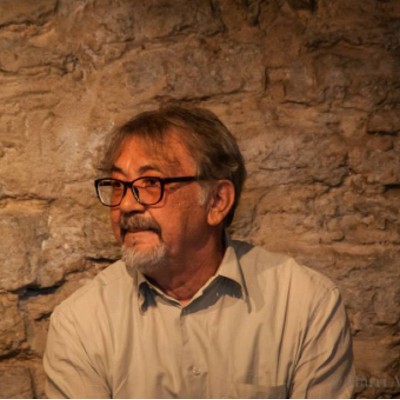
Goran Simić was born in 1952 in Yugoslavia. Author of short stories, plays, opera librettos, he worked as an editor and columnist for magazines and radio. He emigrated from Bosnia and Herzegovina to Canada in 1996 under the auspices of the Canadian PEN. Now he lives in Sarajevo. Goran Simic’s works have been translated from Serbian into 15 languages and are included in the anthologies Scanning the Century (Penguin, 2000) and Banned Poetry (Index of Censorship, 1997). Winner of the US Hellman-Hammett PEN Award for Writer’s Freedom (1994) and the People’s Award of Canada (2006). Goran Simich’s collection of Sunrise in the Eyes of a Snowman was named the best collection of poetry in Canada 2012 by the Canadian Authors Association. He has authored the following books: Escape from the Cemetery (Oxford University Press, 1997), Immigrant Blues (Brick Books, 2003), From Sarajevo With Sadness (Biblioasis, 2005). Selected poems have been published in Great Britain, Romania, Russia, and Bulgaria.
Launched in 2012, “Four Centuries” is an international electronic magazine of Russian poetry in translation.
“The Lingering Twilight” (“Сумерки”) is Marina Eskin’s fifth book of poems. In Russian.
A collection of moving, often funny vignettes about a childhood spent in the Soviet Union.
“Vivid picture of life behind the Iron Curtain.” —Booklist
“This unique book will serve to promote discussions of freedom.” —School Library Journal
A new collection of poems by Ian Probstein. (In Russian)
Young readers will love this delightful work of children’s verse by poet William Conelly, accompanied by Nadia Kossman’s imaginative, evocative illustrations.
A book of poems by Maria Galina, put together and completed exactly one day before the start of the Russian invasion of Ukraine. This is Galina’s seventh book of poems. With translations by Anna Halberstadt and Ainsley Morse.